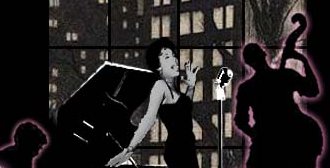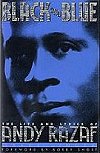Welcome toCafe SongbookInternet Home of the |
 |
 |
| Home || Songs || Songwriters || Performers || Articles and Blogs || Glossary || About Cafe Songbook || Contact/Submit Comment | |
| Search Tips: 1) Click "Find on This Page" button to activate page search box. 2) When searching for a name (e.g. a songwriter), enter last name only. 3) When searching for a song title on the catalog page, omit an initial "The" or "A". 4) more search tips. | |
| Portions of this page have not yet been completed. Thank you for your patience. | |||
Honeysuckle Rose |
|||
Written: 1929 |
Music by: Fats Waller |
Words by: Andy Razaf |
Introduced in: Load of Coal |
| Page Menu | |||
| Main Stage || Record/Video Cabinet || Reading Room || Posted Comments || Credits | |||
On the Main Stage at Cafe Songbook | |
(Please complete or pause one video before starting another.) |
Ella Fitzgerald
|
Cafe Songbook Reading Room"Honeysuckle Rose" |
|
| About the Show Load of Coal / Origins of the Song | |
|
Load of Coal was a Black revue produced by the Immerman Brothers for performance at their club, Connie's Inn, in Harlem in 1929. Waller and Razaf wrote three songs for the show: "My Fate Is in Your Hands" (a ballad), "Zonky" (an up-tempo tune) and "Honeysuckle Rose." According to Maurice Waller (Fats' son) and Anthony Calebrese in their biography of Waller, the first two were given more prestigious placings in the show while "Honeysuckle Rose," a soft shoe, "was relegated to the chorus as a forgettable tap number." As a result the song had to wait to achieve popularity, and eventually its status as a standard, until it became the centerpiece of a film short bearing its title and Paul Whiteman played it on the radio. It did not make the charts until Fletcher Henderson recorded it in 1933. By 1935, versions by Red Norvo, Waller and the Dorsey Brothers had also charted. The earliest of roots for "Honeysuckle Rose" is related by Barry Singer in his biography of Razaf. The song, or at least its title, was born at the Club Alabam on West 133rd street in Harlem as far back as the winter of 1924. The young Razaf had won himself the chance not only to perform a song but to write both words and music for it.
Razaf would "junk this original lyric and melody" right after the show closed but put the title away apparently as "worthy . . . of further consideration." Five years later when it came time to finish up the third song for Load of Coal, Razaf stitched his old title and a few other elements to Waller's chorus. He then telephoned Waller to run it by him and they put the finishing touches on the song, including a new version of the eight bar bridge because Waller, not having written down his original, had forgotten what he had written the day before.
Neither Razaf nor Waller knew they had written an immortal song. "We Thought very little of [it] at the time," Razaf later recalled.
|
| back to top of page | |
| Critics Corner | |
| (This section is currently in preparation.) | |
| back to top of page | |
| Lyrics Lounge | |
(This section is currently in preparation.) Click here to read Cafe Songbook lyrics policy. |
|
| back to top of page | |
Visitor CommentsSubmit comments on songs, songwriters, performers, etc.
Feel free to suggest an addition or correction. Please read our Comments Guidelines before making a submission. (Posting of comments is subject to the guidelines. Not all comments will be posted.) |
| To submit a comment, click here. |
Posted Comments on "Honeysuckle Rose":
No Comments as yet posted |
| back to top of page |
Credits(this page) |
Credits for Videomakers of custom videos used on this page:
Borrowed material (text): The sources of all quoted and paraphrased text are cited. Such content is used under the rules of fair use to further the educational objectives of CafeSongbook.com. CafeSongbook.com makes no claims to rights of any kind in this content or the sources from which it comes.
Borrowed material (images): Images of CD, DVD, book and similar product covers are used courtesy of either Amazon.com
Any other images that appear on CafeSongbook.com pages are either in the public domain or appear through the specific permission of their owners. Such permission will be acknowledged in this space on the page where the image is used.
For further information on Cafe Songbook policies with regard to the above matters, see our "About Cafe Songbook" page (link at top and bottom of every page). |
This section is currently incomplete. The Cafe Songbook |
||
|
Performer/Recording Index
(*indicates accompanying music-video)
|
||
Year Music-Video
Notes: |
||
| back to top of page | ||
Year Music-Video
Notes: |
||
| back to top of page | ||
Year Music-Video
Notes: |
||
| back to top of page | ||
Year
Music-Video: |
||
| back to top of page | ||
Year Music-Video
Notes: |
||
| back to top of page | ||
Year Music-Video
Notes: |
||
| back to top of page | ||
Year Music-Video
Notes: |
||
| back to top of page | ||
Year Music-Video
Notes: |
||
| back to top of page |
| Home || Songs || Songwriters || Performers || Articles and Blogs || Glossary || About Cafe Songbook || Contact/Submit Comment | |
© 2009-2018 by CafeSongbook.com -- All Rights Reserved |

